








The nursery industry is episodically presented with a pest whose spread threatens the viability of one of its most economically important crops. The Box Tree Moth (BTM) is the most recent pest to loom over the industry, with the potential to stop the estimated $140 million/year boxwood crop in its tracks and derail the nearly 1,700 wholesale and retail nurseries in the U.S. that produce and sell them.
The caterpillars of the Box Tree Moth (Cydalima perspectalis), a native to East Asia, are heavy feeders of boxwood (Buxus spp.) leaves and bark, with the potential to kill the entire plant. Since 2007, BTM has been a serious pest in Europe, where Boxwoods are native trees. The first occurrence of BTM in North America was in the Toronto, Ontario, Canada, region in 2018. Since then, the moth has been found in Niagara County, New York (2021), Michigan (2022), Ohio and Massachusetts (2023), and more recently, Delaware and Pennsylvania. Transmission of BTM has occurred by both natural and commercial means.
A threat as large as the one posed by BTM requires the cooperation of all industry stakeholders, from the nurseries themselves to federal regulators. In 2023, the National Plant Board and the United States Department of Agriculture (USDA) Animal and Plant Health Inspection Service (APHIS) Plant Protection and Quarantine (PPQ) formed a task force to address the interstate and intrastate commercial movement of
boxwoods and the issue of quarantine. The task force’s work resulted in the Box Tree Moth Compliance Agreement, issued as a Federal Order on May 23, 2024, which provides a regulatory framework with the aim of preventing the spread of BTM via nursery operations. State Plant Regulatory Officials (SPROs) can implement and administer this BTM Compliance Agreement in their own states.
The Compliance Agreement, which allows for the movement of boxwoods out of quarantined areas, requires boxwood producers to follow an integrated systems approach to training, surveying, trapping, and treating for BTM. Producers may ship boxwoods out of a quarantined area only if all compliance requirements are met and verified by the SPRO and all products are free from BTM.
While the BTM Compliance Agreement is still in its infancy, boxwood producers are already getting on board. Willoway Nursery in Avon, Ohio, has anticipated BTM’s eventual arrival and implemented its own BTM response plan in 2023. Willoway’s plan is similar to the Compliance Agreement plan of action, according to Ben Averitt, Willoway’s R&D Staff Horticulturist. Averitt said BTM has not yet been spotted in the vicinity, but its existence in southern Ohio and in nearby counties in Michigan is worrisome. Willoway has just completed its BTM Compliance Agreement.
According to Averitt, the agreement’s protocols call for comparable strategies that Willoway already had in place to slow the spread of boxwood blight. The agreement differs most significantly in a requirement for more frequent and targeted scouting and more detailed recordkeeping.
“None of this is wild stuff,” says Averitt. “The hardest part is the recordkeeping and finding time to do it. With processes in place, building habits, and making sure you’re doing it, it works.”
“We’re looking at [BTM] as, it’s not a matter of if, it’s a matter of when,” says Eric Martz, Operations Manager for Spring Meadow Nursery in Grand Haven, Michigan. While Grand Haven is more than two hours west of the quarantined counties surrounding Detroit, Spring Meadow is “all in on going through the compliance.”
According to Martz, the BTM Compliance Agreement is a step in the right direction and not one that is abnormal for the industry, as there are compliance agreements for other pests such as Japanese Beetle and Spongy Moth. Spring Meadow already scouts their crops and trains their crews on identification. The one difference with the Compliance Agreement is its upleveling or intensity.
“The documentation and the frequency increase are definitely part of it, and also the verification of training, so it's a little more,” Martz says, but necessary in order to slow down the spread of BTM and not disrupt supply.

Bennett Saunders of Saunders Brothers in Piney River, Virginia, saw firsthand the damage BTM could do during a trip to Europe in 2018.
“We knew that this could potentially be a huge pest for the United States and for the industry,” Saunders said. “I approached the Horticultural Research Institute (HRI) and the boxwood blight researchers and told them, ‘You should prepare for this because if this insect comes to the states, all of your work on boxwood blight will have been in vain.’”
When BTM was spotted in Toronto, Saunders said HRI immediately started working on the issue. Major nursery stakeholders also approached the USDA APHIS to request a common compliance agreement for the U.S. in order to ship plants from a quarantine area. Saunders said the inability to ship boxwood from within a quarantine area would be catastrophic for the quarantined nursery.
“We're still in the very early stages of this, but the scientists and state regulators are moving in the right direction and working with the growers, and that's a huge success story,” Saunders said. “I congratulate the
Continued on Page 5…
Watch the recent HRI tHRIve webinar explaining the BTM Compliance Agreement at HRIResearch.org or scan the QR code.
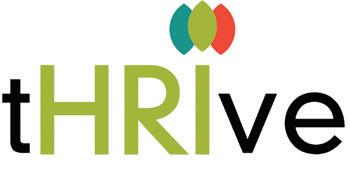
Here is an excerpt from the press release announcing the lawsuit filed on October 9, 2024. Co-Plaintiffs Include the American Farm Bureau Federation, AmericanHort, Florida Fruit & Vegetable Association, Mississippi Farm Bureau Federation, North American Blueberry Council, State of Mississippi, Stone County Farm Bureau, Texas International Produce Association, and the U.S. Chamber of Commerce.
On October 9, 2024, the International Fresh Produce Association (IFPA) and nine co-plaintiffs filed a lawsuit contesting the U.S. Department of Labor (DOL)’s unconstitutional regulatory overreach and limitations on the freedom of speech of farmers who employ temporary workers. The other plaintiffs in the action are the American Farm Bureau Federation, AmericanHort, Florida Fruit & Vegetable Association, Mississippi Farm Bureau Federation, North American Blueberry Council, State of Mississippi, Stone County Farm Bureau, Texas International Produce Association, and the U.S. Chamber of Commerce.
The lawsuit argues that DOL’s recently finalized H-2A rule, already enjoined in 17 states, illegally gives temporary agriculture workers collective bargaining rights, restricts the First Amendment rights of farmers who employ H-2A workers, and creates additional onerous burdens for employers and state governments. Taken separately and together, these effects are causing and will continue to cause irreparable harm to the carefully balanced and essential American agriculture industry.
“DOL is exacerbating an already enormously challenging labor crisis for growers and agriculture employers across the country. This lawsuit challenges the unauthorized process through which DOL passed this rule and the unlawful and unconstitutional impacts it has on American agriculture employers,” says IFPA CEO Cathy Burns.
“Our industry is dedicated to providing fresh, healthy foods that nourish the world, but without certainty in the H-2A program, which provides farmers access to qualified, valued foreign workers and, likewise, gives those workers the ability to legally work in the United States, it is much harder for us to grow and harvest the fresh fruit and vegetables consumers want and expect throughout the year. IFPA has challenged the DOL’s damaging regulation at every stage of the rulemaking process, and this lawsuit is the next step in our work to protect the fresh produce industry.”
Ken Fisher, AmericanHort President and CEO, is quoted in the release:
“The DOL rule represents a regulatory overreach that ignores both legislative and judicial precedent. It imposes serious limitations on farm employers’ abilities to run their businesses while erecting barriers for those same employers to communicate with their employees.”
“Our members depend on a reliable, legal workforce, and they deserve access to the H-2A program without facing excessive costs and red tape. By joining this lawsuit, we are standing up for a fair, balanced program that ensures our industry’s survival and success. We have advocated for a fair and equitable seasonal workforce program in this country for years, so we naturally support this collaborative effort to ensure agriculture and horticulture businesses can thrive.”
Scan the QR code to read the entire press release and view the case filing PDF.
Members from the AmericanHort Community Connectors and Board of Directors met in October in Columbus, Ohio, to discuss the association’s strategic plans and key initiatives for 2025.
The Community Connectors are representatives from key industry segments that make up the horticulture industry. Connector leads from each segment— greenhouse, nursery, garden retail, landscape, and interior plantscape— were in attendance.
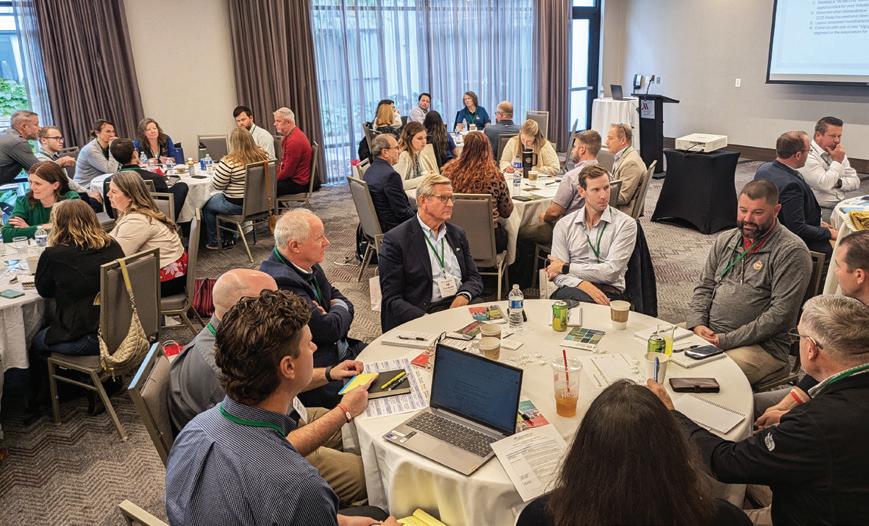
This annual meeting helps shape upcoming programming and educational topics for events like Cultivate, webinars, and roundtables. The valuable contributions from the Community Connectors and Board are vital to the success of AmericanHort programs.
Neal Glatt, managing partner at GrowTheBench, facilitated exercises focused on fostering meaningful connections with members and the broader industry.
The ideas and partnerships formed during this meeting will guide AmericanHort’s efforts to enhance member engagement and shape impactful programs as we move into 2025.

Continued from Page 3…
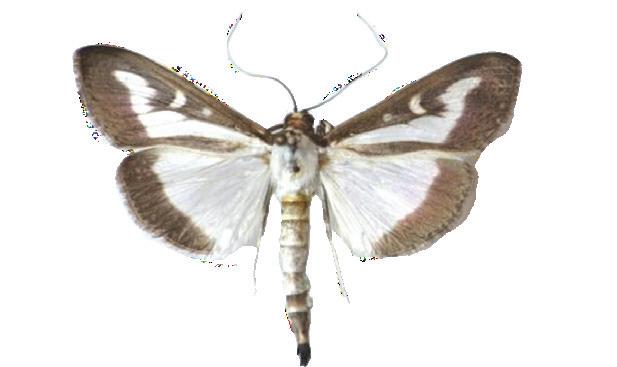
federal authorities that they realized how big of a problem this was, took action, got input from the grower community, and moved forward.”
Nursery stakeholders were eager to have the USDA involved with BTM to avoid the confusion that stemmed from the different sets of protocols each state implemented to deal with the boxwood blight issue.
“We saw through the guidance of HRI and others that we had a real freight train coming down the tracks,” said Brian Decker, President of Decker’s Nursery in Groveport, Ohio. “We could either pretend it didn't exist, or we could team up with our government agencies.”
Decker said what the USDA did was an example of government at its finest. “They lit a fire under the issue, saw it was extremely urgent to do good science, and come up with a compliance agreement that would allow nurseries to operate and move forward.”
Decker also credits the stakeholder nurseries for donating thousands of boxwoods for testing purposes. He also commends HRI for acting as an organizational clearinghouse to help coordinate the USDA and industry stakeholders.
“Everybody at HRI and AmericanHort did whatever it took to organize meetings between stakeholders—be it state, federal agencies, Canadian agencies, USDA representatives, and nurseries— to keep everybody at the table talking to each other and to make sure we all understood where this program was,” he says. “We just want to thank them for having the industry's back and for everybody working unselfishly in the right direction.”
Learn more at HRIResearch.org.
The AmericanHort Advocacy & Government Affairs team in Washington, D.C. works to ensure that the issues of the green industry are heard and understood by government officials in Congress and with staff from federal agencies. You can stay informed about the latest developments, laws, and regulatory matters impacting your business by reading Impact Washington, our members-only, bi-weekly newsletter. AmericanHort premium members even have more resources they can access when it comes to legislative, regulatory, and day-to-day business matters. If you want to get more involved, there are more ways, whether at home, in your office, or by getting on a plane and coming to Washington to engage with lawmakers. Here is a guide to help you get started.

The most fundamental step in advocacy is registering to vote. Not only does voting allow citizens to choose representatives who align with their views and can advocate for their interests, but it also holds leaders accountable for their actions. By voting, you are actively participating in the democratic process and showing your elected officials that you care about their decisions at the local, state and national level.
Once you have cast your ballot, your role as a constituent does not end. Whether your preferred candidate won or lost, your elected officials still need to hear from you. In fact, it is important to communicate with an elected official who may not align with your priorities.
“They still have an obligation to listen to you, regardless of if you support their policies and priorities,” says Rachel Pick, AmericanHort Senior Manager, Advocacy & Government Affairs. “Your representatives need to understand the issues that matter to you. They need to hear how legislative decisions they make affect you, your business, or your community.”
Years ago, we had limited options for communicating with elected officials. It was not uncommon (and still not uncommon) for politicians to interact with voters through public engagements. Constituents are also able to reach their representatives through tried-and-true methods such as sending letters through the postal mail or leaving phone messages. Today, thanks to advancements in technology, options exist from not only sending emails but also using social media channels to connect with elected officials.
With the number of options to engage with elected officials, it’s easy to understand if people may become overwhelmed. If you are looking for a simpler way to get involved, AmericanHort provides tools like Voter Voice. The platform matches you with your representatives based on your address, with a pre-crafted message highlighting specific legislation. All you need to do is to enter your contact information and hit send. This is one of the easiest ways to engage in advocacy. While it may seem like a small action, these messages help elected officials understand how specific bills or legislation affect their constituents. AmericanHort alerts members of current Voter Voice opportunities.

Matt Mika Vice President, MattM@AmericanHort.org

Rachel Pick Senior Manager, RachelP@AmericanHort.org
After you have sent your message, you may receive a response from your representative, either automated or personalized. Regardless of the form, this is your opportunity to continue the conversation. If the response does not fully address your concerns, consider following up or exploring additional ways to engage. Again, AmericanHort is here and can help you continue the conversation.
At this stage, you might decide to invite your representative for a visit or participate in more advocacy efforts. The more touchpoints you create, the more likely your message will be heard.


Kamron Newberry Advocacy Project Coordinator, KamronN@AmericanHort.org
Another effective way to engage in advocacy is by participating in fly-ins or visiting Washington D.C. AmericanHort organizes opportunities like the Impact Washington Summit biannually, allowing members to meet representatives and agency officials face-to-face. AmericanHort will share information about the 2025 event in the coming months, so stay tuned. Our advocacy team brings speakers to inform you about our industry's most significant issues, including labor, the Farm Bill, tax issues, and agency rules and regulations. Then, the team schedules time with representatives and agency officials so you can share your experiences with policymakers to influence the decisions that affect your business.
"Engaging with the entire AmericanHort team is vital to our industry. The Impact Washington fly-in is one of the key ways to directly inform and educate our elected officials at the federal level," says Michael Frantz, chairman of the AmericanHort Advocacy Committee and CEO of Frantz Nursery.
If you miss the biannual Summit, the AmericanHort team often participates in coalitions that hold meetings throughout the year. These gatherings give you another avenue to make your voice heard and contribute to meaningful discussions. The AmericanHort advocacy staff can keep you informed on upcoming coalition meetings.
Continued on Page 9…
Phytophthora austrocedri killing juniper. Photo used with permission of Forestry Research. Crown Copyright, Forestry Research, United Kingdom.

The Horticultural Research Institute (HRI) recently announced that, in response to the recent discovery of Phytophthora austrocedri, nearly $250,000 in federal funds have been shifted to address the urgent research needs of the horticultural community.

The funds, provided through USDA Agricultural Research Service’s (ARS) Floriculture and Nursery Research Initiative (FNRI), will be used to study and manage this emerging threat to the horticulture industry. The research represents a concerted effort to safeguard valuable plant species at risk from this destructive pathogen, particularly those in the Cupressaceae family, which includes economically and ecologically important plants like cypress, arborvitae, juniper, and cedar.
HRI would like to thank USDA partners Drs. Tim Rinehart, Jerry Weiland, and Nik Grunwald and Oregon State University partners Drs. Alan Peper and Mana Ohkura for working quickly to reprioritize FNRI research objectives toward this emerging issue.
Phytophthora austrocedri is a water mold that causes severe disease in woody plants, primarily affecting the roots and collar area, which leads to the decline and death of the infected plants. First detected in Argentine Patagonia, where it was linked to widespread dieback of the native Austrocedrus chilensis trees, Phytophthora austrocedri has since emerged as a growing concern in other parts of the world, including the United States, where it has been detected in two Oregon nurseries. The funding will support research on various aspects of this pathogen, including its biology, transmission, environmental factors contributing to its spread, and methods for control. Understanding the disease's epidemiology is crucial for effective management in nurseries and the broader landscape. HRI is collaborating with leading plant pathologists, nursery operators, and landscape professionals to ensure that research results can be quickly translated into practical recommendations for the industry.
Read more at HRIResearch.org or scan the QR code.
Another impactful way to engage is by inviting your representative to visit your business or organization during congressional breaks, also known as recess or district work periods. Recess provides time for elected officials to return to their home districts to connect with their constituencies. This is an excellent opportunity for you to show them firsthand how their decisions affect your business or industry.
“Show them how the decisions they are making are impacting your business, creating a ‘suits meeting the boots’ moment,” says Pick. “Invite them for a tour of your operation. Let them see what you are doing, how you are doing it, and how their policies affect your business.”
The more your elected officials understand your daily operations, the better they can advocate for policies that benefit you and your operation.
For advocacy to be successful, it is essential to educate lawmakers, especially new members of Congress or staffers who may not be familiar with the specific issues that affect your business or industry. It is a long-term process, but the relationships you build with elected officials can have lasting benefits. Even if your representative is unfamiliar with your issues, your advocacy efforts help them understand the stakes, not only for your business but for the whole green industry.
Remember, advocacy is a marathon, not a sprint. The more you engage, the stronger your voice becomes, and AmericanHort is here to support you every step of the way.
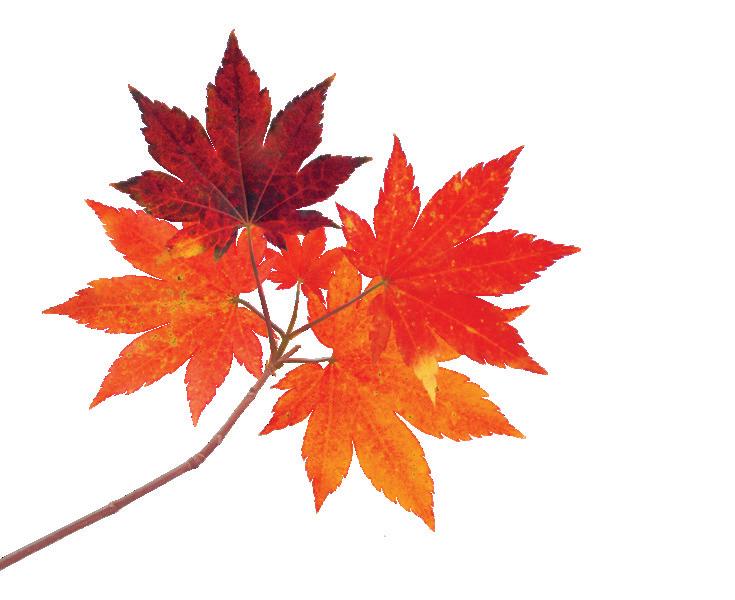
We warmly welcome the 100+ new members who joined from July to September.
See the list of organizations and individuals who joined at AmericanHort.org/NewMembers or scan the QR code

Congratulations to our August winner:
Heather Young-Semling L.B. White Company, LLC Onalaska, WI

& FIN
In each issue of Connect, we’ll be “hiding” a new small graphic. When you find it, email us at ConnectSeekAndFind@AmericanHort.org, and tell us where you found it.
For this issue, respond by December 10.

The Horticultural Research Institute (HRI) launched the HRI Leadership Academy to nurture future leaders in the green industry through leadership and business skills training, personal and professional growth, and networking opportunities. A healthy and robust industry is one with connected leaders who positively impact their businesses, industry, and communities.
Managed through HRI and generously supported by AmericanHort, the HRI Leadership Academy fulfills a need for developing leaders through tailored training, coaching, and access to an extensive network of industry professionals.

Christine Fortman of Berridge Nurseries in Arizona was one of the participants in the inaugural Class of 2023. Reflecting on her experience, Christine highlights the profound impact the program has had on her professional life and the broader perspective the HRI Leadership Academy offers.
“It has been a true shift with my style and approach,” she says, adding that the HRI Leadership Academy helped her grow as a leader, equipping her with tools to enhance her interpersonal skills and leadership style. She views the training as an essential step for anyone looking to push past the status quo and avoid stagnation in business leadership.

Another inaugural class member, Kyle Fessler, from Woodburn Nursery & Azaleas in Oregon, echoes similar sentiments. As a third-generation grower, Kyle joined the HRI Leadership Academy during a transitional period for his family business. He applied to the program to better prepare himself for future leadership roles.
“(My siblings and I) will eventually be the leaders of this organization. I needed to build the tools and skills I will need in a leadership role,” he explains.
The program gave him insights into communication styles, helping him work more effectively with employees by sharing the importance of what they do, not just delegating tasks.

Both Christine and Kyle emphasize the connections they formed with their fellow participants, with Kyle noting that he still communicates with his classmates regularly.
“I am incredibly proud of and inspired by my other classmates. It opened our eyes that there's more we can do and contribute,” says Christine, noting that she joined the AmericanHort Board of Directors in 2024 and two of her classmates, Denise Mullins and Jonathan Jasinski, joined the HRI Board of Trustees in 2023.
HRI is now accepting applications for the HRI Leadership Academy Class of 2026. This one-year program includes in-person training and online courses. The program culminates with a final presentation at Cultivate’26.
Candidates with at least five years of leadership experience and seven years of industry experience will be given preference. Applications are due February 7, 2025.
If you have questions, contact Jennifer Gray, Research Programs Administrator, Horticultural Research Institute, JenniferG@AmericanHort.org.
Apply at HRILeadershipAcademy.org or scan the QR code.
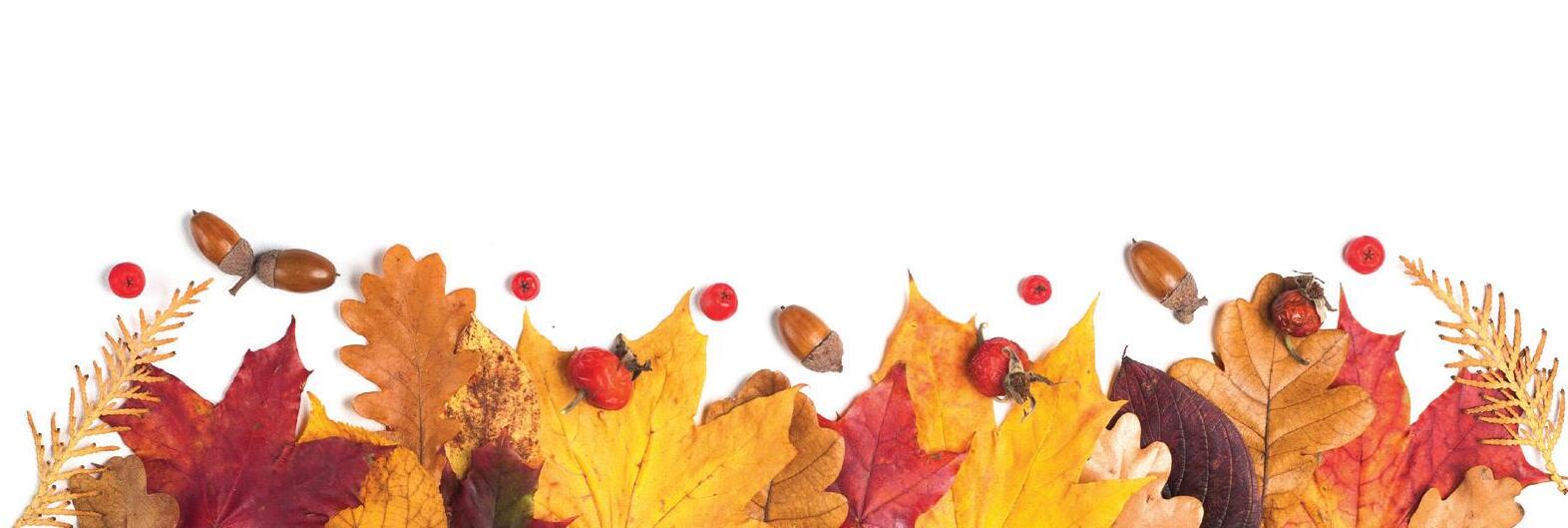
Support this program by contributing to the HRI Leadership Endowment Fund and empower even more aspiring leaders.
Over time, the fund will help make the HRI Leadership Academy a permanent opportunity for green industry leaders, ensuring a strong future for future generations.
Donate at HRILeadershipAcademy.org/Donate or scan the QR code.
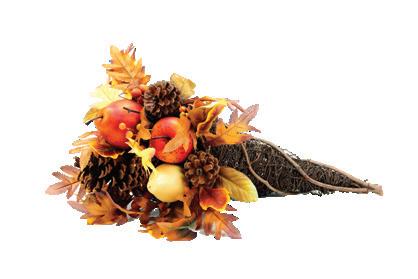

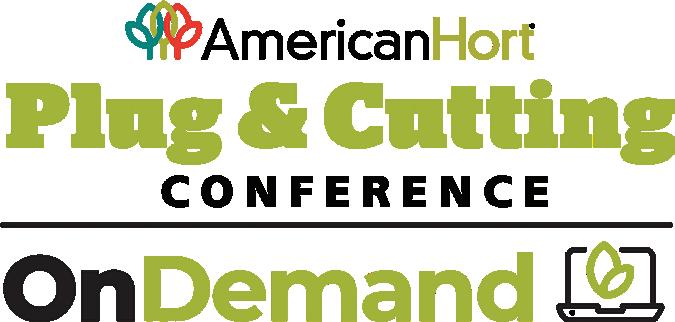
The all-new Plug & Cutting On-Demand bundle gives young plant producers a chance to learn the latest foundation skills and risk management tools through 14 pre-recorded webinars taught by the industry’s best growers, researchers, and educators.
• Learn advanced techniques and best practices for plant propagation and growth, focusing on optimizing lighting, plant nutrition, and growth regulators.
• Gain insights into strategic production planning, aligning operations with consumer trends, and developing effective nutrient programs tailored to water quality.
• Understand the importance of standard operating procedures (SOPs) for training and consistent performance in plant production environments.
• Four are presented in Spanish, focusing on pests, diseases, and growing media. *Available to purchase separately.
To learn more, visit AmericanHort.org/LearnOnline or scan the QR code.
By Mary Beth Cowardin, AmericanHort Vice President, Marketing & Member Engagement
This fall was challenging for members of our industry due to Hurricanes Helene and Milton. The economic impact of these storms has begun to unfold, and the road to recovery will be long. The outpouring of support from within the industry has been truly inspiring. Many have asked how to donate or help, demonstrating the deep compassion that defines our industry.
As the cleanup process continues, financial assistance is vital. Clearing debris, securing properties, and restarting businesses require resources, making monetary donations particularly impactful. AmericanHort encourages those who want to donate to the Red Cross, state funds, or other reputable organizations working directly in the affected areas.
The Maryland Nursery and Landscape Association shared a unique idea with industry leaders. If you are doing business with anyone in an affected area and have a shipment planned, first confirm they can receive the shipment. If they can, inquire about what specific supplies they need and include them with your shipment. This approach allows you to deliver aid directly to those who need it alongside your regular business operations.
Another initiative that made a difference was the Letter Drive for Western North Carolina, organized by the North Carolina Farm Bureau’s Ag in the Classroom program. Writing letters of encouragement for those affected by Hurricane Helene can lift spirits during this difficult time. If you’d like to participate, you can send your letters to:
NCFB Attn: Ag in the Classroom PO Box 27766 Raleigh, NC 27611
In Georgia, the Georgia Department of Agriculture, Georgia Farm Bureau, and Georgia Foundation for Agriculture have established the Weathered But Strong: Georgia Hurricane Relief Fund. This initiative aims to provide direct relief to Georgia farmers impacted by the storm. 100% of all donations to the fund will go toward helping Georgia farmers recover and rebuild.
These small gestures of support can greatly impact those facing immense challenges, even if communication channels remain disrupted due to power and infrastructure issues. As we learn of additional resources, we will report them and post them on the AmericanHort website. To those affected by Hurricanes Helene and Milton, please know that you are not alone. Your peers across the country stand ready to assist.
Scan the QR to visit Resources for Disaster Recovery & Support.
Don’t forget to pass along your Connect Issue to your colleagues.




Each class is $99 for AmericanHort members. You must register for each session individually.


Presented by Becky Paxton and guest Katie Dubow of Garden Media Group
November 5, 12 & 19
Elevate your personal brand in this threepart series, where you’ll access your reputation, target the values that guide you, and leverage the skills that set you apart in the green industry, then launch your brand using the same principles and techniques of global brands.
Free for AmericanHort members.
Sponsored by


Presented by Ben Molenda, Best Human Capital and Advisory Group
November 20
Learn to plan strategically for a rewarding professional life by exploring your role in the supply chain, the career options available in the industry, and how to network to open doors to advancement.
Learn more or register for an upcoming education at AmericanHort.org/Education or scan the QR code.
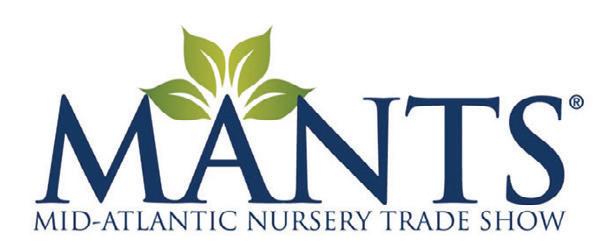
letting
Suitcasing is the act in which unauthorized individuals or companies attempt to solicit business at MANTS. The unauthorized individuals may have registered as show attendees or be sharing booth space with companies who are registered as legitimate exhibitors. In the latter instance, the exhibitor is knowingly permitting a non-registered company to use its space, which is an act in defiance of show rules.
JANUARY 8–10, 2025
Visit us at Booth #2342
Suitcasing is not permitted at MANTS. This policy includes attendees trying to solicit business for themselves, as well as exhibitors who are letting non- registered companies share their booth space.
All exhibiting companies must be contracted with and through show management. Exhibitors may not sublet their exhibit space nor permit any other company to use their exhibit space under any circumstances. All companies that wish to exhibit at MANTS should submit a wait list application, the link to which is found on the homepage of the MANTS website, www.mants.com.
Tuesday, January 7, 5–7 p.m.
Pratt Street Ale House
206 W. Pratt St.
individuals or companies atte may have regis registered as leg permitting a non-re policy includes attendees
Any attendee who is observed to be soliciting business in the aisles or other public spaces, in another company’s booth, or in violation of any portion of the Show Guidelines, will be asked to leave immediately. Please report any violations you observe to Show Management. You may call the show office at 410-649-7472 or flag down one of us as we walk the show floor. Please try to get the business card of the individual who is suitcasing. Show Management will do our best to find the “suitcasers” and remove them from the building.
Reception sponsored by:
MANTS exhibitors who engage in suitcasing, meaning they have knowingly included, and permitted companies not registered with Show Management to work from the exhibitor’s booth, will face penalties to include closure of your booth, loss of years of seniority, and /or exclusion from future shows. Incidences reported will be addressed by Show Management.
Let us all work together to protect our MANTS exhibitors, our show integrity, and reputation as “The Masterpiece of Trade Shows.”
We want to get to know you better. Help us do so by following us on Social Media—our way of connecting with our members and community.

@AmericanHort @youramericanhort @American_Hort @AmericanHort


AmericanHort is the national association of horticulture businesses and professionals across the spectrum of the industry. Perform better, grow stronger and prepare for the future as a member of AmericanHort, the green industry’s leading association.
AmericanHort.org
AmericanHort Connect 2024: November/December
Publisher: Mary Beth Cowardin, Vice President, Marketing & Member Engagement
Editor: Cindy Whitt, Marketing Communications Manager Hello@AmericanHort.org 2130 Stella Court Columbus, OH 43215-1033 USA (614) 487-1117
©2024 AmericanHort. All rights reserved. This material may contain confidential information, and it is for the sole use of AmericanHort members. The information contained herein is for general guidance and not for the purpose of providing legal advice. It cannot be distributed, reprinted, retransmitted, or otherwise made public without prior written permission by AmericanHort. Please contact the editor at (614) 884-1147 for permission with acknowledgment.

